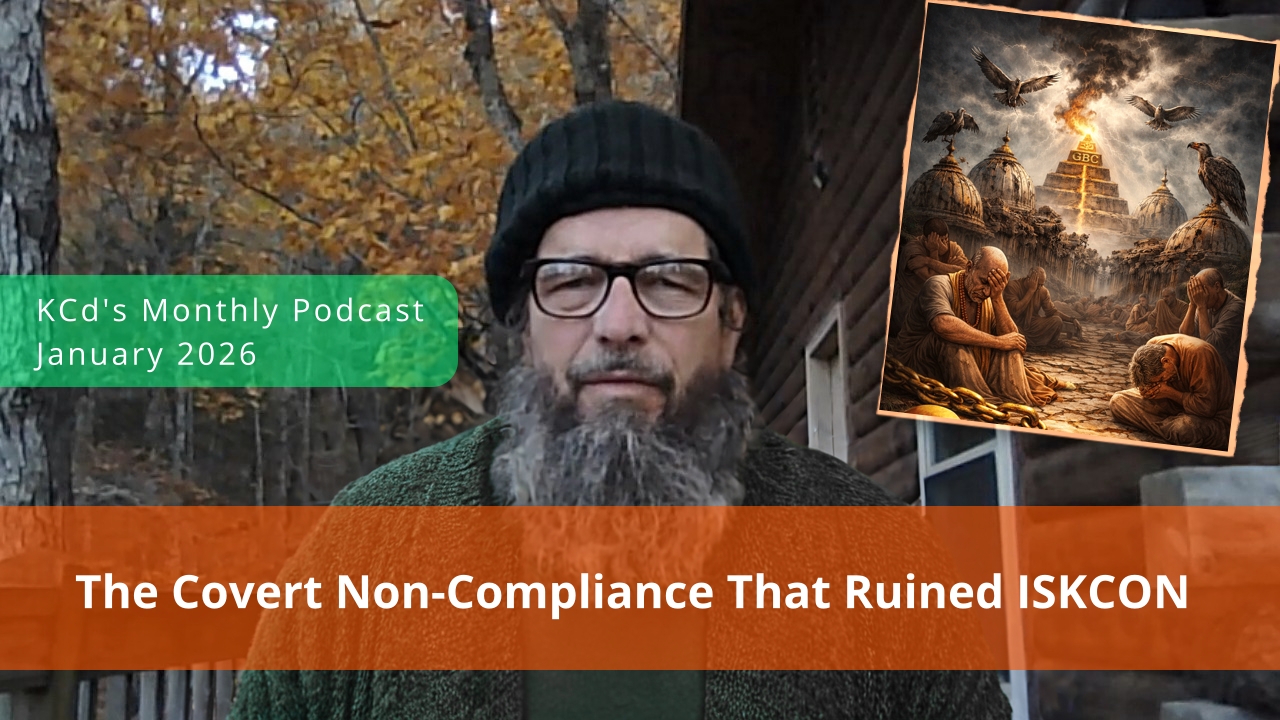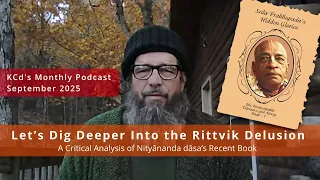New Release
On Consciousness & The Perfection of Man
A treatise and critique transcending Western speculation, Eastern screed, organized religion, occult gaslighting, and the three bogus “Krishna” cults

New Posts
Podcast transcription: Contradiction Baked in the “ISKCON” Cake by Kailäsa Candra däsa HARIÙ OÀ NAMAÙ “On the other hand, that...








